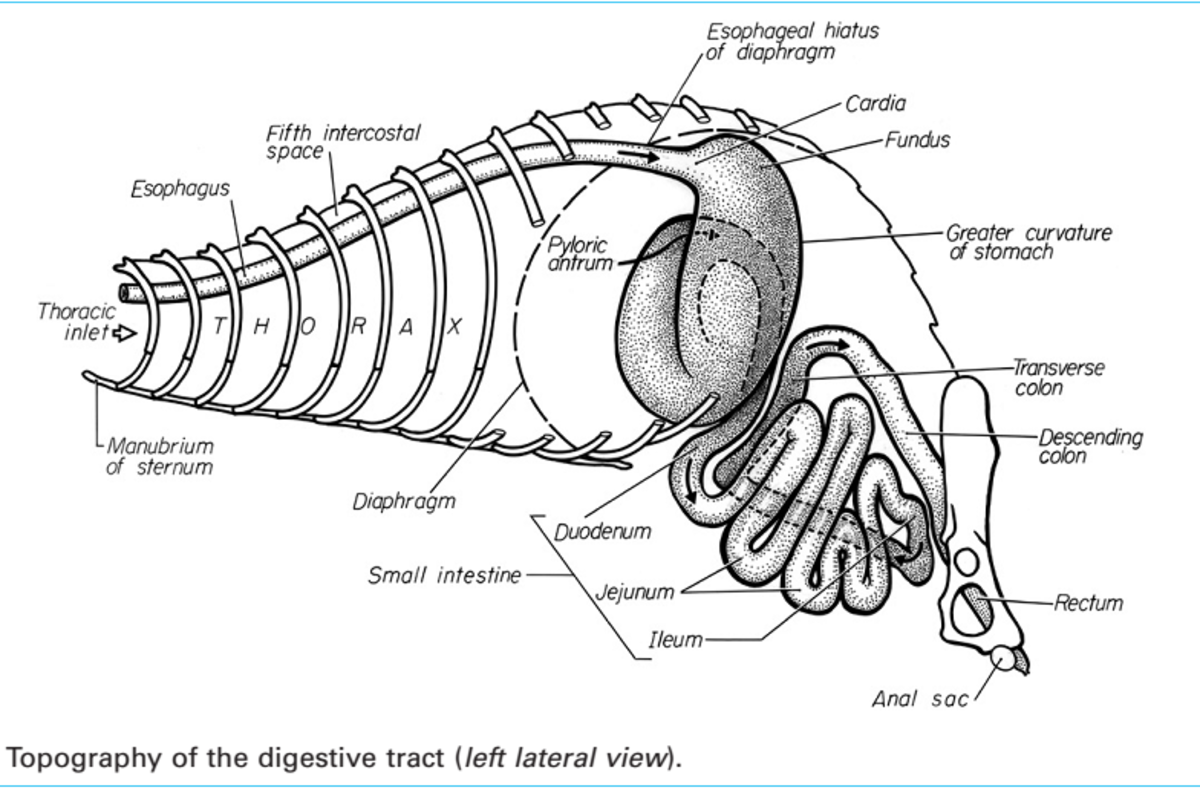
Lindsey Turner
Ferret Digestive System
Ferrets are small animals with a very fast metabolism. As carnivores, they require a high-protein diet with very low carbs and sugars. For such small animals, their stomachs are quite large and their intestines are complex, even though they are very short.
Having a good understanding of how their digestive systems work will help you keep your ferret as healthy and happy as possible.

T. Huffman
The stomach
The ferret has a basic and simple stomach. For a small stomach, it can hold a little: 80% of the ferret’s food is held in the stomach cavity.
Stomach acids break down food quickly, taking about three hours. However, although ferrets are able to break down simple carbohydrates, they cannot break down complex carbohydrates very well. The lipids and glucose stimulate the stomach to start releasing acids and start the digestion process.

Small intestine
After food is broken down, it is pushed down into the small intestine. It actually consists of three different parts.
First is the duodenum. Food comes first here and is mixed with more digestive juices. The liver and pancreas secrete fluid here to help continue digestion.
The next two parts are the jejunum and ileum. They work together and absorb all the nutrients from food.
Large intestine
The small intestine then pushes the remainder into the large intestine. The large intestine is made up of the colon and rectum. Here it collects all the waste, creates stool and sends it down the rectum. Unlike humans and some other animals, the ferret does not have a cecum or ileocolic.
The Pancreas and Gallbladder
There are other major organs that aid in digestion: the pancreas and gallbladder. The pancreas releases enzymes into the small intestine that break down fat, protein and carbohydrates.
The liver does two main things. It creates and secretes bile, and it also cleans and filters the blood coming from the small intestine. Ferrets (as well as people!) need these secretions to digest properly.

What Are Ferret Nutritional Needs?
Good quality food has nothing to do with the brand name attached to it. If it has what the ferret needs to stay healthy, then it is good food. This is just a quick overview of what works best and is the easiest for a ferret to digest.
A ferret’s diet should contain:
- 35% to 30% meat protein (not by-products, if possible)
- 18% to 25% fat (lower fat content is better for older, slower ferrets. Otherwise, stay on the high side)
- Low carbohydrates. Keep fiber to less than 3%.
- B vitamins, A, D3 and E. You can supplement them, but it is better if it is in food.
- Rice or corn as a binding agent. Rice is better, as it is easily digested and corn can be an allergen for some ferrets.
Gastrointestinal Problems
There are several problems that ferrets can get that affect their digestive systems. If you think your ferret is suffering from one of these, please seek a vet clinic.
- Gastrointestinal foreign body (swallowing something they shouldn’t have gotten stuck)
- Gastritis (stomach inflammation)
- Proliferative bowel disease (prolapse anus)
- Eosinophilic gastroenteritis (inflammation of the stomach and intestines)

A Healthy Ferret is a Happy Ferret
Once you understand the functioning digestive system of a ferret, you will understand the importance of having certain dietary needs.
Remember, you don’t have to buy the most expensive food on the shelf. Buy the best you can within your budget. As pet parents, we all want only the best for our pets. People go through tough times, and if you have to downgrade for a while, don’t feel guilty. Take care of your furry friend with all the love and care you can.
By keeping them healthy and happy, they will surely reward you with their love and funny antics for years to come!
This article is accurate and true to the best of the author’s knowledge. It is not intended to replace diagnosis, prognosis, treatment, prescription, or formal and individualized advice from a veterinary medical professional. Animals showing signs and symptoms of distress should be seen by a veterinarian immediately.
© 2019 Ask Huffman
Comments
Daniel Reeves on August 26, 2020:
I believe there should be an article on word of mouth, otherwise this is a really good resource for science reports etc.


